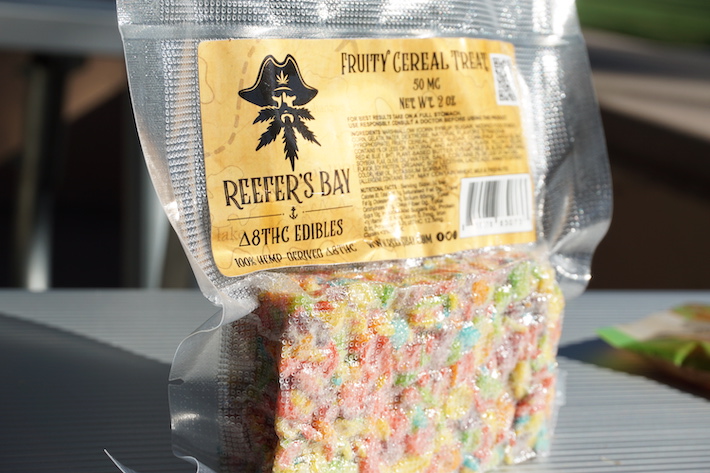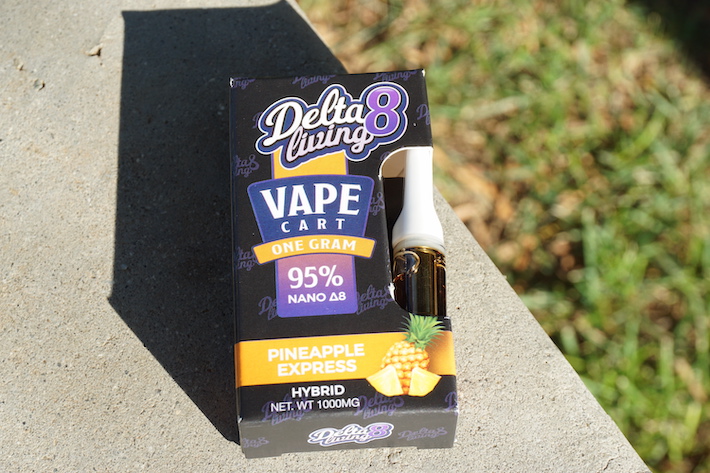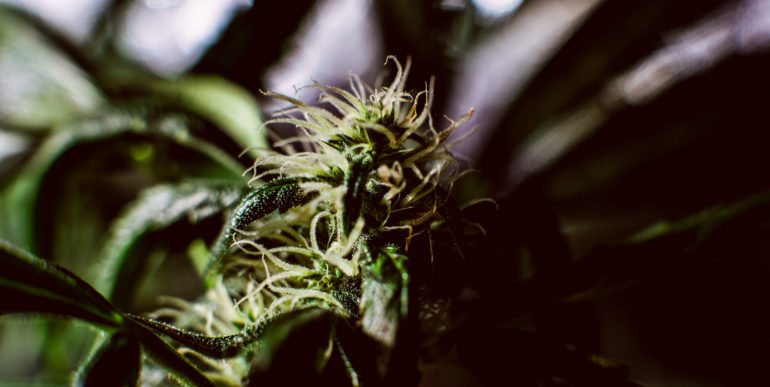Delta-8 THC is legal in Kentucky, but as of August 1st, 2023, it is only available to adults aged 21 and over.
However, consumers were left in limbo for over a year while a legal battle between the Kentucky Department of Agriculture and the state’s Hemp Association played out. The short version is that – as in Texas – the courts ruled in favor of the industry and delta-8 remained legal, but new regulations coming into force in 2023 aim to keep the products safe for adults and out of the hands of minors.
Here’s a run-down of the most important laws about delta-8 THC in Kentucky.
Is Delta-8 THC Legal to Sell in Kentucky?
Delta-8 THC is legal to sell in Kentucky, following a legal battle which stretched through 2021 and early into 2022.
Delta-8 THC is legally classed as “hemp” in Kentucky despite an attempt from the Department of Agriculture (DoA) to claim that it wasn’t. House Bill (HB) 197 legalized hemp in Kentucky in 2019, using the same definition as used by the federal government in the 2018 Farm Bill. The DoA’s argument – that delta-8 THC is not exempted from the controlled substances bill – was rejected in court and so delta-8 THC is still legal in the state under HB 197.
In March 2023, Kentucky passed HB 544, which establishes many regulations for intoxicating hemp products, explicitly including delta-8 THC. This bill creates a minimum age of 21 for possession or purchase of intoxicating hemp products, requires that stores keep them behind the counter, establishes testing requirements and creates standards for labeling and packaging.
RELATED: Delta-8 THC Legality by State
Delta-8 THC Legislation Timeline for Kentucky
Delta-8 THC has been legal in Kentucky since HB 197 passed in 2019, despite some confusion throughout 2021.
As discussed in the previous section, HB 197 (likely unintentionally) legalized delta-8 THC in Kentucky in 2019. This is basically because the bill follows the language of the federal Farm Bill – with the minor differences in text having no impact on its meaning – and this is broadly considered to have defined “hemp” in a way that includes hemp-derived delta-8 THC.
In 2021 and through to mid-2022, the Kentucky DoA had a legal dispute with the state Hemp Association, which is discussed in more detail below. The short version is that the DoA incorrectly asserted that delta-8 was not exempted from the controlled substances act in the state, but in fact it was. The Kentucky Hemp Association pointed this out and ultimately won in court.
On November 15th, 2022, Governor Andy Beshear issued an executive order which stated explicitly that “delta-8 is not a controlled substance under either Kentucky law or federal law,” and that the state’s packaging and labeling requirements for hemp cannabinoid products will be applied to delta-8 THC products in the state.
Finally, on March 23rd, 2023, HB 544 was signed into law. This directs the Cabinet for Health and Family Services to create regulations for intoxicating hemp products, including those mentioned in the previous paragraph, creating a lab testing process for these products, preventing anyone aged under 21 from buying or possessing intoxicating hemp and requiring stores to keep these products behind the counter. The labeling requirements are also spelled out in detail in this bill.
These rules were filed on August 1st, 2023. These create a definition of “adult-use cannabinoids” (basically including all THCs and artificially-derived cannabinoids that have an intoxicating effect) and banned their sale (or transfer) to anyone aged under 21. It also prohibits using some specific ingredients (such as vitamin E acetate) and spells out testing and labeling requirements in detail.
The Kentucky Hemp Association vs. the Department of Agriculture
On April 19th, 2021, the Kentucky DoA published a letter arguing that delta-8 THC is illegal in the state because, in the view of their legal counsel Joe Bilby:
“Congress created a narrow exemption from the Controlled Substances Act’s definition of “marijuana” (DEA numbers 7350 and 7360) for hemp that contains not more than 0.3% total Delta-9 THC. Cannabis with total Delta-9 THC in excess of that threshold remains a Schedule I substance.
There is no equivalent exemption for Delta-8 THC.”
This led to raids on two local stores and the Kentucky Hemp Association filed a lawsuit following a letter to DoA counsel Joe Bilby. This letter put the counter-argument forward, notably that the Farm Bill’s exemption was not “narrow” in the way they suggest at all – the definition of hemp includes all cannabinoids in the plant, provided that the plant is within the limit for delta-9 THC. The DoA letter was criticized because “its analysis completely misses the issue,” with Rod Kight explaining the key problem:
“D8 THC is a cannabinoid. When D8 THC is derived from hemp it is lawful by definition since it contains no more than 0.3% delta-9 THC. In fact, it does not contain any delta-9 THC. Although they are similar in their molecular structures, D8 THC and delta-9 THC are two separate and distinct cannabinoids.”
The court ultimately sided with the Hemp Association, noting that:
“Thus, if only natural hemp (unadulterated by any chemical) is worthy of exemption, then Congress, and the General Assembly, could have made their statutes say so. They did not. Likewise, if the extraction or production of derivatives using non-hemp solvents should have remained a controlled substance, then the legislators could have, by statute, said so. They did not. Nor did the legislative body choose to limit Delta-8 concentrations as it did with Delta-9. Again, they could have but did not. Courts ‘cannot question the wisdom or policy of the general assembly’ but, rather, ‘must follow the plain provisions of its enactment.’”
Can Delta-8 THC Be Added to Food?
Delta-8 THC can’t be added to food that will enter interstate commerce, but if a product remains within Kentucky, state law allows licensees to manufacture and sell ingestible hemp cannabinoid products.
Kentucky law states that (section 4(1)) a “hemp-derived cannabinoids may be added to an ingestible product during the manufacturing process or prior to retail sale at a food service establishment.” However, at the federal level, the Food, Drug and Cosmetic Act (FD&C Act) makes it illegal to include delta-8 THC in any product introduced into interstate commerce. This means that if the product remains in the state – thanks to Kentucky law – it is allowed to be sold, but otherwise it is not.
Can You Buy Delta-8 THC in Kentucky?
Delta-8 THC is available to buy in Kentucky for anybody aged 21 or over, from both brick-and-mortar stores and online retailers.
RELATED: The Best Delta-8 THC Brands to Shop Online
Delta-8 Alternatives You Can Legally Buy in Kentucky
Since Kentucky has now opted to regulate intoxicating hemp compounds with HB 544, hemp delta-9, HHC, delta-10, THCP and other products are legally available provided they are derived from compliant hemp.
Are There Age Restrictions on Delta-8 THC Products?

Yes. Age restrictions requested through HB 544 for intoxicating hemp products were established on August 1st, 2023. These limit delta-8 THC and other intoxicating hemp products to adults aged 21 or over.
It’s worth noting that the bill doesn’t just prevent the sale of delta-8 THC to minors, but also makes it illegal to transfer it (i.e. give it for free) to anyone aged under 21 and for them to possess it.
Can You Consume Delta-8 THC in Public in Kentucky?
There are technically no laws addressing delta-8 THC use in public in Kentucky. However, it’s worth noting that the state’s medical marijuana law doesn’t allow smoking, and that many cities in the state ban smoking in indoor locations.
There is no law addressing public consumption of hemp products in Kentucky, but the state’s recent medical marijuana bill gives an indication of the attitude the state is likely to take. In this bill, smoking is not allowed at all, and so it’s likely that smoking hemp in public would be at least frowned upon by authorities. It’s important to remember that this doesn’t technically apply to hemp – it even says so explicitly in the bill – but it is the only place the state has even remotely addressed this issue.
In short, you can technically consume delta-8 THC anywhere, or smoke it anywhere cigarette smoking is allowed, but it is strongly recommended that you only do so in private.
Can You Drive Under the Influence of Delta-8 THC in Kentucky?
It’s illegal to drive under the influence of delta-8 THC in Kentucky. In short, it’s illegal to drive under the influence of any intoxicating substance.
Kentucky law for driving while intoxicated makes it clear (section 189A.010(1)(c)) that it covers any substance that impairs your driving ability, so delta-8 THC would undoubtedly be included in this. Therefore, you can’t drive while you’re intoxicated on delta-8.
However, it’s worth noting that you can’t be punished purely for having marijuana in your blood (section 189A.010(12)(a)). Since drug tests can’t tell the difference between delta-8 and delta-9, the issue for the law is whether you are impaired or not, rather than simply having THC in your system.
RELATED: Does Delta-8 THC Make You Impaired?
For a first offense (section 189A.010(5)(a)), you’ll be fined between $200 and $500, jailed for between 2 and 30 days, or both. The judge may agree to 2 to 30 days of community labor instead of the fine or jail time, or both.
Can You Travel to Kentucky With Delta-8?
You can travel to Kentucky with delta-8 THC. Since it is legal both at the federal level and in the state itself, there are no restrictions on traveling across state lines with it.
The Transport Security Administration (TSA) points out that hemp products are legal at the federal level, and that they don’t really search for marijuana anyway. So provided you are over 21, you can travel to Kentucky with Farm Bill compliant delta-8 THC products. However, it’s a good idea to bring a Certificate of Analysis (COA) for any products you travel with as proof that it is Farm Bill compliant.
Closing Thoughts: The Future for Delta-8 in Kentucky

Kentucky lawmakers passed rules relating to delta-8 THC earlier in 2023, so it’s unlikely anything substantial is coming in the next year. There are currently no bills pending related to hemp, and the main change on the horizon is those brought by HB 544, for which regulations were set forth on August 1st, 2023.
So after a long period of debate, a false ban, a surprisingly sassy judge and an executive order from the Governor, delta-8 THC remains legal in Kentucky. Crucially, though, it will be only available to adults and it will have to be tested before it can be legally sold.

